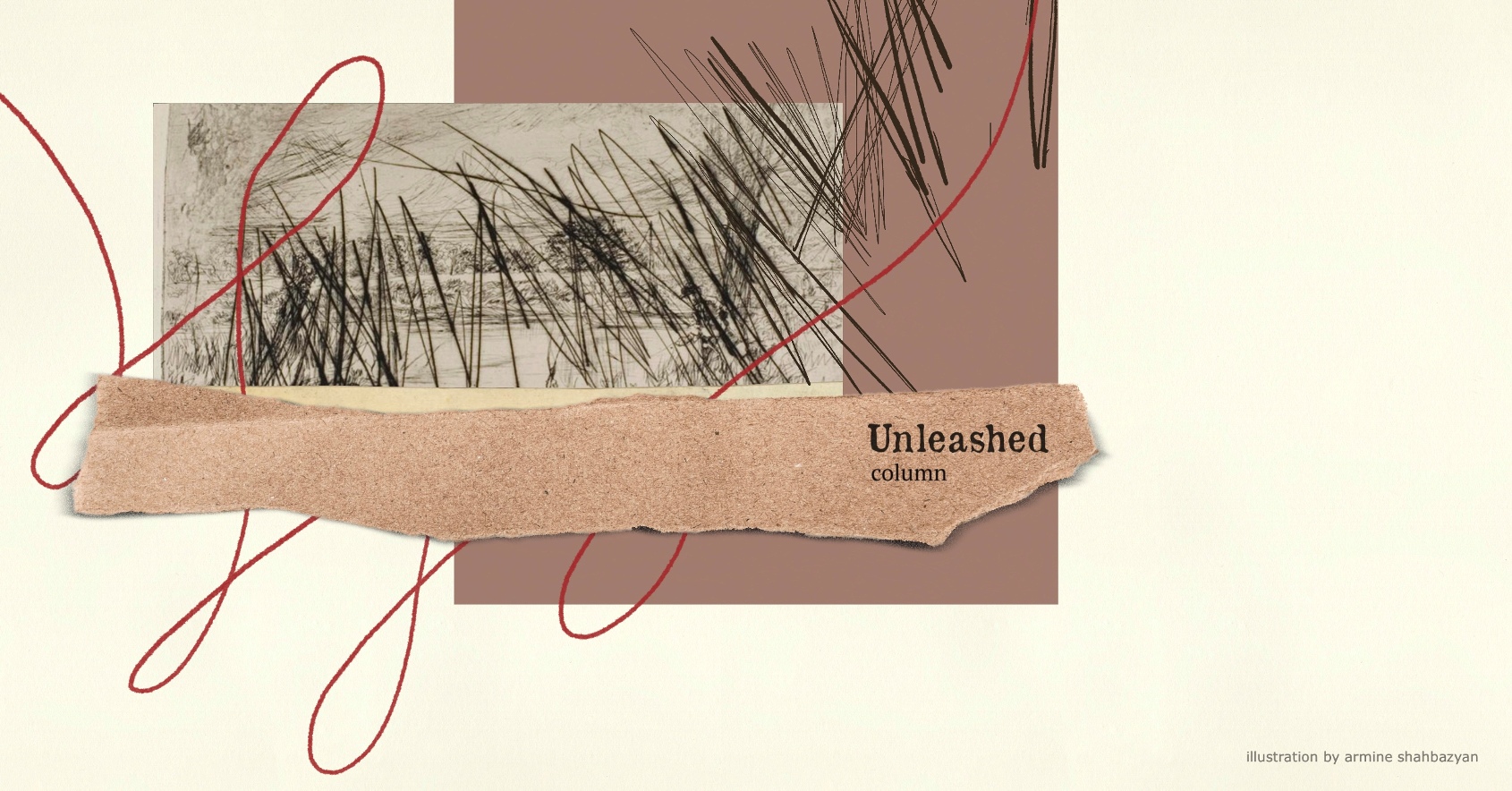

Have you ever had a dream so captivating that you didn’t want to wake up? My favorites are those in which I can fly. They feel incredibly real, imbued with a sense of freedom that is exhilarating and liberating. Unfortunately, such dreams are rare. More often, I’m haunted by nightmares, a recurring theme since my childhood. When I was little, these nightmares were especially vivid and unrelenting. I would be enveloped in flames, pursued by killers, or drowning in a vast sea. Night after night, they wrestled me in my sleep, leaving me paralyzed and screaming until my mother came to soothe me back to the safety of consciousness.
Seeing the toll that these terrors took on me, my mother taught me how to assert control over the dreamscape and steer their direction when things got too scary. She convinced me that I was completely in charge of my own reveries; I was the director of the play that was unraveling in my mind. With practice, I learned to recognize that I was indeed dreaming, which in turn gave me the power to alter the narrative of the nightmare and disarm the horrors that plagued me. This skill of changing course within a dream was a lesson in the importance of awareness and perception—a lesson that is ever more relevant now in the waking world.
The use of propaganda and disinformation is as old as human communication itself, utilized by leaders across civilizations to consolidate power and control populations. From the ancient Egyptians, who used monumental inscriptions to glorify pharaohs and legitimize their rule, to the extensive state-controlled efforts of the Roman Empire to shape civic perception through rhetoric and public displays, manipulation of information has always been a strategic tool for governance. In more modern times, the printing press and later, broadcast media, provided governments powerful new platforms for propaganda, enhancing their ability to shape national narratives and influence both domestic and international opinion.
The manipulation of information reached new levels of sophistication under the Soviet Union, where the state wielded propaganda as a central tool to maintain control and suppress opposition. The Soviets perfected the art of disinformation, using state-controlled media to rewrite history, erase political dissidents from public memory, and propagate ideological purity. Tactics included fabricating stories to discredit political rivals, controlling educational narratives to promote loyalty, and employing censorship to limit access to alternative viewpoints.
Today, the proliferation of digital technology has given rise to even more potent forms of manipulation. In the United States and globally, the advent of artificial intelligence and deepfakes—highly realistic and difficult-to-detect digital manipulations of audio and video—have escalated the potential for disinformation. These technologies allow malicious actors to create very convincing falsehoods that can rapidly spread across social media platforms, blurring the line between reality and fabrication at an unprecedented scale and speed.
Then there’s the relentless consumption of content through reality TV and curated social media feeds, which blurs that line even more. These “shows” and “reels” prioritize sensationalism and emotional response over critical thought, and create a veneer of reality that is often far removed from the actual truth, contributing to a societal shift where surface-level engagement replaces deep understanding. This constant barrage of trivial content dulls critical thinking and lulls viewers into a passive, zombie-like state, making them more susceptible to manipulation. The confluence of these factors—sophisticated digital manipulation tools and the trivialization of discourse through entertainment—poses arguably the most serious threat we’ve ever known to the public’s ability to engage meaningfully with the real issues that shape our planet.
What better evidence of this than when Donald Trump remarked, “This is going to be great television,” at the end of his surreal, live shouting match on February 28 in the Oval Office when he and Vice President J.D. Vance ganged up on Volodymyr Zelenskyy of Ukraine. The talks were of monumental importance—with the potential to affect millions of lives, the future of a sovereign nation, and the stability of an entire continent—yet, all President Trump seemed to care about were his ratings.
That a figure known primarily for his reality TV fame could ascend to the U.S. presidency not just once, but twice, illustrates the pervasiveness of such a spectacle-driven culture. To be fair, Zelenskyy also became the president of Ukraine with few qualifications other than having previously played one on TV. Now, he finds himself at the helm of a nation engaged in one of the most consequential and bloody conflicts of the 21st century. This normalization of the absurd exposes a disturbing complacency among the masses, who seem alarmingly at ease with the potential repercussions of entrusting such significant responsibilities to individuals known more for their performances than their policymaking prowess.
Not that seasoned politicians are inherently more virtuous; in fact, it’s the public’s growing distrust in conventional political figures that likely fueled this backlash. Leaders like Russia’s Vladimir Putin, Rwanda’s Paul Kagame, and Turkey’s Recep Tayyip Erdoğan, who once rode waves of popularity and were heralded as heroic figures, have gradually turned into brutal dictators. But at least they initially earned their positions through elections or by gaining public support, unlike others like Azerbaijan’s Ilham Aliyev or North Korea’s Kim Jong Un, who were just handed their roles on silver platters from their fathers. Some self-proclaimed “democratic” presidents can’t even be bothered to earn their own stripes—why climb the ladder when you can just ride the family elevator to the top?
And why go through the motions of holding elections if they’re obviously rigged and there’s no real intention of relinquishing power peacefully? Because they create the illusion of legitimacy and fool the local population into thinking that they have a semblance of choice while masking the reality of continued authoritarian rule. This deception only works if you don’t engage critically with the onslaught of lies, propaganda, and disinformation designed to render you docile and convinced that there is nothing you can do about it.
But there is plenty you can do about it. For one, reduce your consumption of television and social media, and be very selective and discerning of the content you allow to meet your eyes and ears. When you encounter information presented as fact that piques your interest, delve into its context—propaganda often exploits partial truths, so keep an open mind. Verify the source, but remain cautious, as even trustworthy sources can unintentionally disseminate misinformation. It’s also important to cross-check information across various outlets, scrutinize the evidence, investigate the authors, recognize biases—including your own—question underlying motives, apply logical reasoning, examine any visuals, and educate yourself on media literacy.
Look, I get it—it’s a lot to handle. We all lead busy lives, striving just to get by while searching for moments of enjoyment or relaxation whenever possible. And there’s nothing wrong with the occasional escape, so long as you prioritize quality over quantity. I once flew to Moscow for just 48 hours to attend a party, by myself. The event was set on a private estate an hour’s drive outside the city, and featured DJs from all over the world. All guests, referred to as “Dreamers,” arrived elaborately dressed and meticulously disguised. With my hair draped in peacock feathers and my ears transformed into those of an elf, I danced in the forest with fairies, frogs, and other fantastical beings until well after sunrise. Aptly named “A Midsummer Night’s Dream,” the event would have made William Shakespeare proud, and in homage to Demetrius in Act 4, Scene 1 of his play, I made it a point to ask anyone who would listen, “Are you sure / That we are awake?” The enchantment was so intoxicating that we all wished the night would never end.
Of course, the demands of real life and the mundane inevitably set back in. But escapes like that whirlwind trip to Moscow can remind us of the richness of experience that active participation in life offers. Although reality can often seem like a nightmare, always remember that you are in control of the narrative unfolding in your mind. And now, more than ever, the world needs you awake.
See all [Unleashed] articles here
Listen to Sheila’s personal reading of “Are You Sure That We Are Awake?”

Sheila Paylan is an international human rights lawyer and former legal advisor to the United Nations. Now based in Yerevan, she regularly consults for a variety of international organizations, NGOs, think tanks, and governments.

